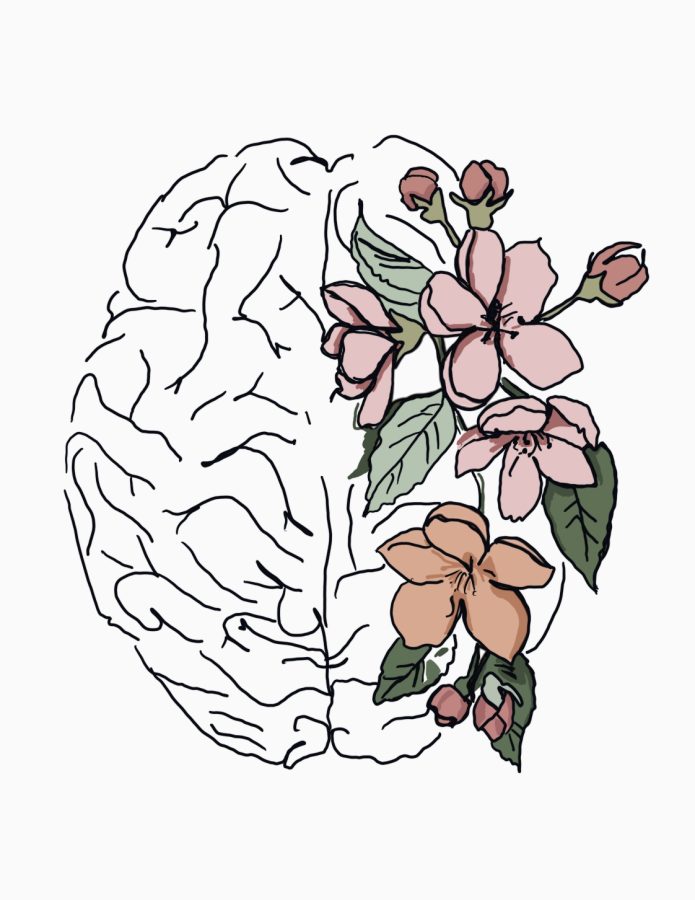Gift or Burden?
December 6, 2022
The glaringly obvious 92.3% on the computer glowed brighter amongst all the near-perfect grades on Mira’s screen. A nonchalant A- gleamed proudly with a sneer as if to taunt the poor girl. She had done everything right. Mira had stayed up, wrote through hand cramps, and bit her lip even when her slightly misogynistic lab partner had written wrong answers during class, only to spend twice as much time erasing and perfecting their lab reports. Mira bent over backward to grasp the perfection that she so desperately yearned for. If she would’ve studied for a bit longer, or maybe if she would’ve predicted her teacher’s cruel idea of fun in the form of a pop quiz that was only out of five, she wouldn’t be in this situation. For your information, Mira earned a startling three out of five that she assumed wouldn’t hurt her impeccable grade point average. Oh, how wrong she was.
Mira’s stomach tied itself in multiple knots that forced her to clutch at it as she attempted to regulate her breathing. She wished her grades were in paper form, so she could allow them to catch fire at approximately 451 degrees Fahrenheit. Thank you for that little tidbit, Mr. Bradbury. She threw her phone on her hardwood floor and gasped for breath the second it was out of sight. Mira pinched the skin on her forearm to push the mental pain away and allow for the physical pain. Unfortunately, it took only two minutes for her to slide into a half hour of body-wracking sobs that soaked her floor.
This scene, described in vivid detail, is more common than one might think. In 2011, there were more than 3.2 million children in the U.S that were placed in gifted programs. With a student’s gifted brain working at a speed far faster than any peers around them, children tend to grow isolated. They stress about the classes six months ahead. Talented individuals tend to be highly sensitive, passionate, and idealistic and are far more likely to analyze everything to a nearly microscopic level. They begin as young as toddlers, whose first word may be “why?” As a child, I asked why far too many times to be tolerated. I would look up at my mother and ask why the leaves were falling or turning colors, and occasionally I would even stump my brilliant mother. They want to know about everything in precise detail. Not only do gifted children want to know how, but they also wish to understand why.
It is common for gifted children to feel withdrawn and odd from their peers or even family members. They can become highly critical of anyone deemed “less” worthy due to their lower intelligence. They can see any goal that doesn’t mirror their own as superficial or insignificant.
Existential depression is common in gifted individuals. Existential depression is a type of depression that revolves mainly around existential concepts such as life, death, oppression, and even disease. Manifestations of this form of depression may vary in severity, and symptoms and some examples include:
- Avoidance of other peers because they are unable to relate
- Lacking the motivation to participate in activities that once seemed enjoyable
- Extreme feelings of distress, anxiety, and even sadness about the state of the world
- An obsessive interest in the overall meaning of life and death
A quote sourced by the National Association for Gifted Children (NAGC) states, “About 10% of gifted adolescents experience clinically significant levels of depression*.” Students are constantly subjected to standardized tests such as AP exams, SATs, ACTs, and state testing. Children tend to face constant competition between classmates, whether on the subject of academia or athletics, and students face increased expectations of parents and obscene amounts of homework. Yet, that is simply describing only the average student.
Gifted students run ragged with AP courses, internships, volunteer work, and extracurricular activities to fulfill their need for perfection. One may gaslight themselves into thinking they can handle such a loaded schedule. However, they will not allow themselves to believe that being adequate isn’t a failure in life.
Being gifted can isolate a child due to their high-functioning brain, making them feel far more alone. Giftedness is usually seen as a highly coveted gift that keeps giving and giving. Yet, many do not understand the true downfalls that can follow being gifted. Being gifted does not just mean being smart or talented. It also enhances one’s ability to comprehend things and their sensitivity and empathy. This may cause children to ponder dismal topics such as the state of the world and life and death. Many children begin to feel that if they are not living up to their “perfect” standard, they are living an insignificant life. Therefore, it is crucial to shine a light on the downfalls of being gifted so as not to always glorify giftedness as something to envy constantly. For it is not always a gift and can occasionally be a burden.
*Baker (2004) in Chapter 7 Parent’s Guide to Gifted Children, Webb et al.


